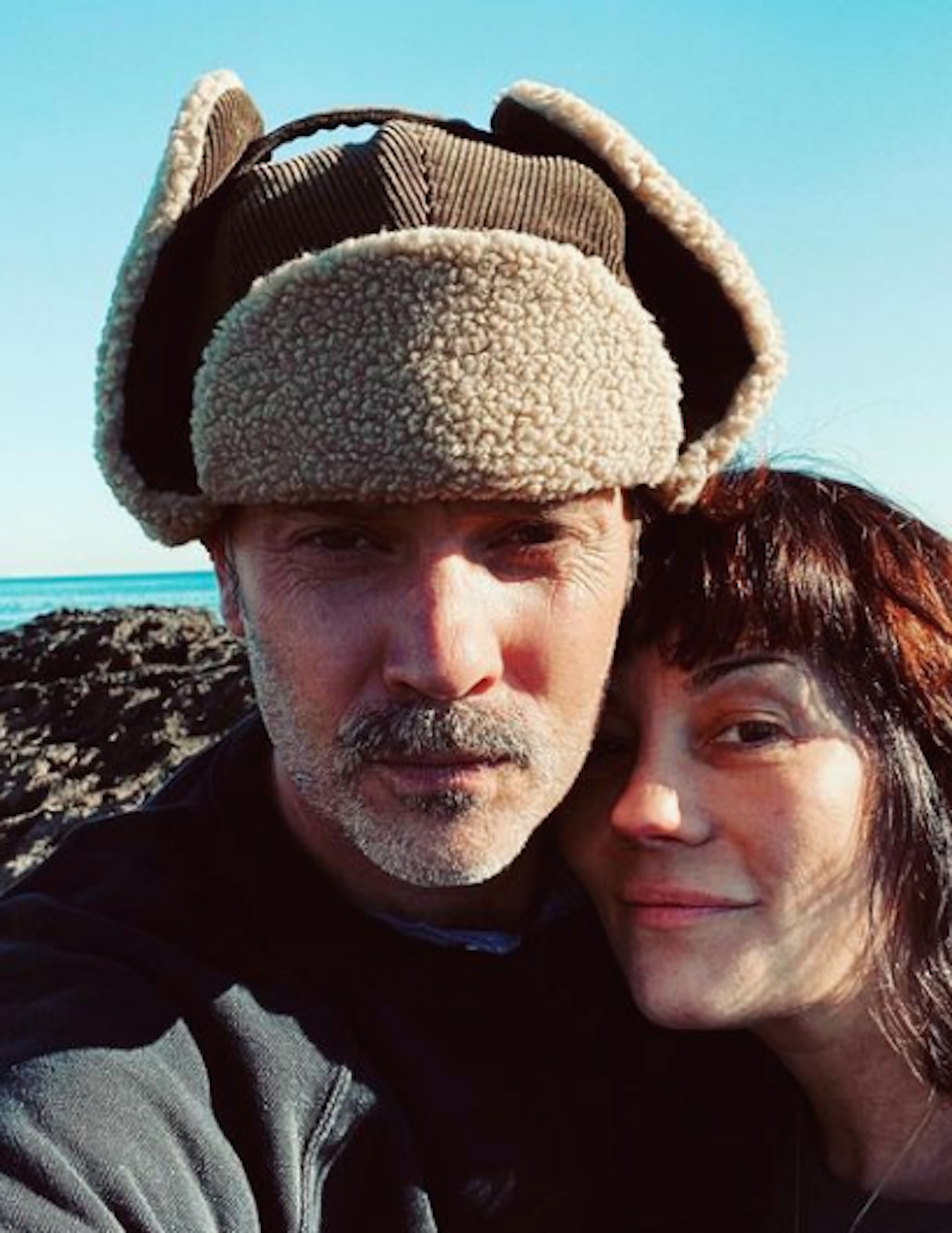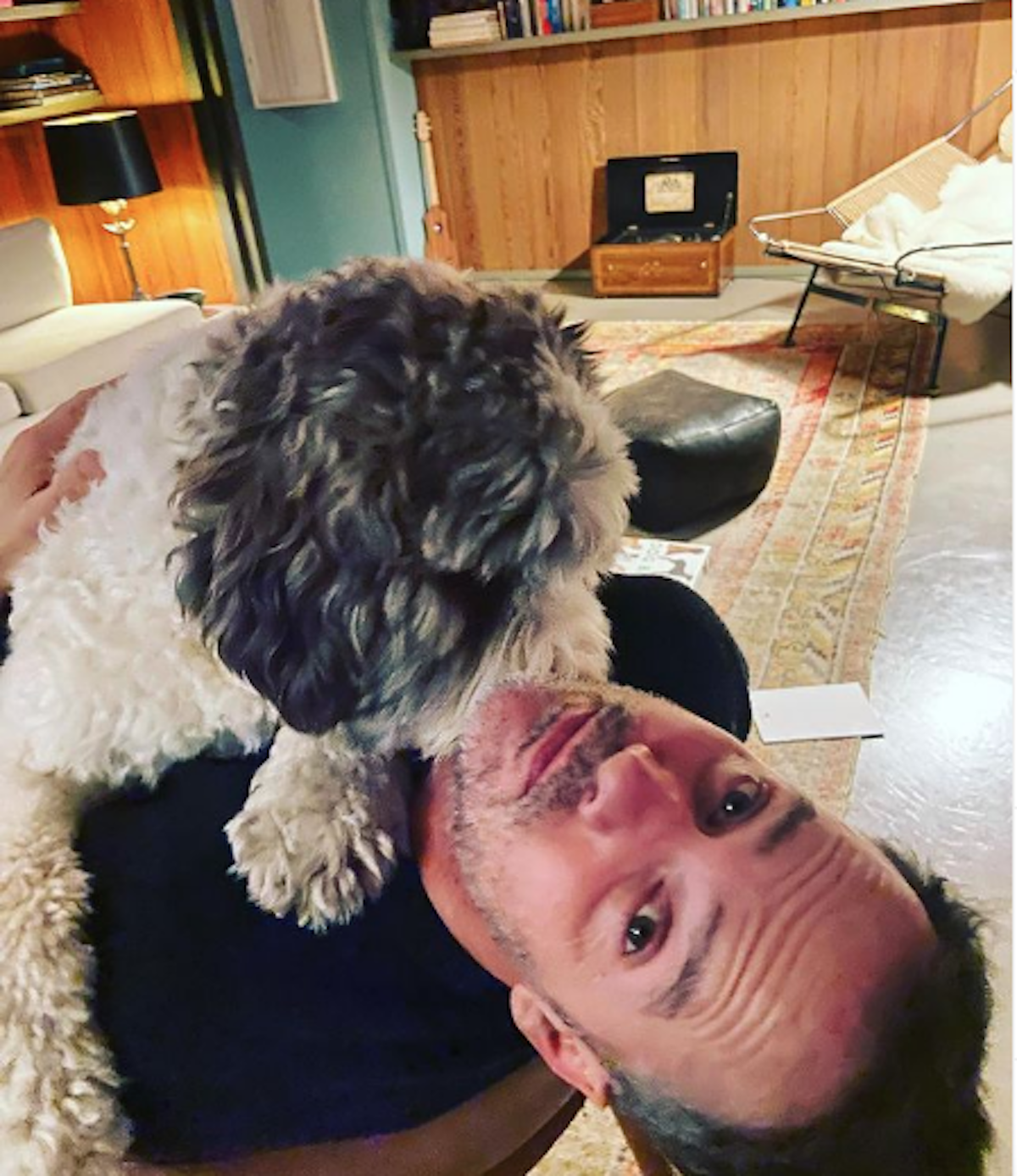Thriving as a Cancer Survivor
- “7th Heaven” actor Barry Watson was diagnosed with Hodgkin lymphoma in 2002 after feeling “so tired” and finding a lump on his neck.
- Now 48, his cancer is in remission and is continuing his acting career.
- Lymphoma is a type of blood cancer.
- Early symptoms of the disease can include swelling of lymph nodes in your neck, armpits or groin, persistent fatigue, fever, night sweats, shortness of breath, unexplained weight loss and itchy skin.
- Lymphoma treatment, in general, depends greatly on the nature of your specific diagnosis.
- One of our experts notes, "unlike other cancers, where advanced stage is a death sentence, that's certainly not the case for lymphoma."
Now 48, Watson known for playing Matt Camden on the hit WB TV Network show, an entertainment staple in so many homes during the 1990s and 2000s is in remission and thriving in his career.

“Naomi is not somebody who’s afraid to try things or take risks,” Watson said during the podcast interview. “When I first read the pilot, I was like, ‘Oh, she’s like Ferris Bueller. Everybody loves Naomi.’ And she’s good at everything. But she’s good at everything because she’s willing to try.”
The series, which premiered on Jan. 11, 2022, was canceled after the first season.
Watson, who is married to Natasha Wagner, with whom he shares his daughter Clover, has been in remission since completing his cancer treatment in 2002 and has acted in various movies and TV series.
Some of the TV series he’s acted in include “Date My Dad,” “Into the Dark,” “Gossip Girl, and “Hart of Dixie.” As for some of the movies he’s been in, he’s acted in “Highway to Heaven,” “My Mom’s Letter From Heaven,” “Kiss at Pine Lake” and “Boogeyman.”
It’s unclear where his acting career will take him in 2023, but one thing’s for sure he’s spending time with the ones he loves, like his wife, daughter, and his dog Willy, according to his Instagram page.

In September 2022, Watson shared a photo of his wife, captioning the post, “Happy Birthday to the love of my life. I love you dummy. I still get butterflies in my stomach when I see you like it's our first date. I hope you have the most beautiful day.”
He’s also taking time to be active and partake in either skiing on snowboarding. On New Year’s Day he shared a photo of himself somewhere on the slopes.
Barry Watson's Cancer Journey
With Barry Watson being well-known actor, it may be easy to forget the ultimate obstacle he faced as his career was reaching new heights: a cancer diagnosis in 2002. At the time, Watson admitted he knew something wasn't right months before his diagnosis while he was promoting his movie “Sorority Boys.”
"I just remember being so tired," he explained in an interview with Coping Magazine. "I was kind of certain that something was going on with my body."
This intuitive feeling is something so many other cancer survivors have told us they experienced too.
Then, a few months later, Watson discovered a lump on his neck. Following a visit to the hospital, he received his diagnosis: stage 2B Hodgkin lymphoma. He took some time off after the sixth season of “7th Heaven” to get treatment, and at the time, Watson stated that he didn’t want to return to season 7 because he wanted “some time to breathe,” according to Entertainment Weekly.
He later returned to the show in periodic guest appearances.
For treatment, Watson underwent chemotherapy every two weeks for six months. But no grueling treatment schedule was going to prevent Watson from doing everything he could to fight the disease.
"I was ready to do whatever I needed to do to get the cancer out of my body," he said.
Speaking to GQ South Africa back in 2020, Watson explained, “I did six months of a chemotherapy cocktail, and found out halfway through treatment that my cancer was undetectable, which was great, but I still had to finish the rest of the three months of treatment.”
ICYMI: Actor @realBarryWatson on how battling cancer forever changed his views on health and fitness> https://t.co/tIMmEukiA3 pic.twitter.com/MGctDSjQ8D
— GQ South Africa (@GQdotcoza) October 30, 2020
He also told the news outlet that his cancer battle changed his outlook on life. “I took better care of myself. I slowed down, I noticed small moments. I had/have an attitude of gratitude,” Watson said, noting that he now focuses more on his overall health and fitness.
Watson recounted his dietician telling him to “always take the stairs instead of the elevator” if possible. He added, “To this day, I still always take the stairs.”
Thankfully, his treatment was successful. Watson completed his treatment in October 2002, and he has been in remission ever since. Even with the passage of time, Watson will admit that cancer will always be a part of who he is.
"It's still such a big part of my life," he previously told the Associated Press. "Because I still think about it, but also time has passed where it's almost like, 'Did that really happen? Did I really go through all that?' And now having this whole other life with my wife and my kids that they weren't even a part of that time, it feels like a lifetime ago."
Today, Watson is married to Natasha Gregson Wagner, 52, with three children. One (Clover Clementyne Watson, 10) with his current wife and two (Felix Watson, 15, and Oliver Watson, 17) with his ex-wife Tracy Hutson, 35. He was also married to Laura Payne-Gabriel before having children.
Understanding Hodgkin Lymphoma
In general, lymphoma is a cancer of the immune system that begins in the white blood cells called lymphocytes.
There are more than 40 different types of the disease, however, Hodgkin lymphoma and non-Hodgkin lymphoma are the main two sub-categories with the latter being more common. The American Cancer Society estimates that about 8,830 new cases (4,850 in males and 3,980 in females) of Hodgkin lymphoma will be found in the United States in 2023.
The type of white blood cells connected to the disease determines the distinction. When doctors are unable to detect the Reed-Sternberg cell a giant cell derived from B lymphocytes then the cancer is categorized as non-Hodgkin lymphoma.
In a previous interview, Dr. Elise Chong, Assistant Professor of Medicine at the Hospital of the University of Pennsylvania, explained that Hodgkin lymphoma is usually seen in younger adults. And although less common, it is generally easier to cure than non-Hodgkin lymphoma.
What Kind of Lymphoma Do You Have? Why Your Type Matters
How lymphoma is treated depends largely on the nature of your specific diagnosis. For non-Hodgkin lymphoma patients, their cancer is more likely to spread in a random fashion and be found in different groups of lymph nodes in the body. Hodgkin lymphoma cancers, on the other hand, are more likely to grow in a uniform way from one group of lymph nodes directly to another.
And even if you're not diagnosed until a later stage, Dr. Chong assured SurvivorNet that "unlike other cancers, where advanced stage is a death sentence, that's certainly not the case for lymphoma."
"We have many treatments with which people can either be cured with advanced stage lymphoma or have very good remissions," Dr. Chong said. "So it doesn't change how treatable someone is, even when they do have advanced stage lymphoma."
Some lymphomas, called indolent lymphomas, might not even need to be treated right away because they're slow-growing. In this case, careful monitoring including imaging scans such as PET/CT is used to track the progress of your cancer and gauge whether it needs treatment yet.
“Where I use PET/CT in my practice quite a bit is if I'm observing a patient… and there is some new symptom or situation which makes me concerned that the patient may be changing from an indolent lymphoma to a more aggressive lymphoma,” Dr. Jakub Svoboda, medical oncologist at Penn Medicine, previously told SurvivorNet. "We refer to it as transformation."
Lymphoma Symptoms
It’s important to remember that lymphomas often sneak up quietly without symptoms. And even when symptoms do show up, they don't necessarily point directly to cancer.
In an earlier interview with SurvivorNet, Dr. Chong explained that lymphoma symptoms could be difficult to detect.
Sneaky Lymphoma Symptoms Often Lead to a Late Diagnosis
"The symptoms of lymphoma, especially if you have a low-grade lymphoma, often are no symptoms," Dr. Chong said. "People say, but I feel completely fine, and that's very normal."
People with lymphoma do not always have symptoms, but common ones are:
- Swollen glands in your neck, armpit or groin
- Fever
- Chills
- Night sweats
- Unexplained weight loss
- Feeling tired
- Swelling in your stomach
No matter what, it's always smart to communicate anything unusual taking place within your body with a doctor. Even if you think there's nothing to worry about, it's good to rule out the possibility of more serious issues.
Treating & Monitoring Hodgkin Lymphoma
According to the American Cancer Society, “Chemotherapy and radiation therapy are the main treatments for HL. Depending on the case, one or both of these treatments might be used.”
Some patients may be treated with immunotherapy or with a stem cell transplant, mainly if other treatments were unsuccessful. Surgery, not including biopsy and staging, is also rarely used to treat this disease.
Meanwhile, when the treatment is completed, it doesn’t mean the cancer-related care is finished.
"Care for people diagnosed with lymphoma does not end when active treatment has finished,” The American Society of Clinical Oncologists explains. "Your health care team will continue to check that the cancer has not come back, manage any side effects and late effects of treatment, and monitor your overall health. This is called follow-up care.”
Follow-up care usually means talking with your doctor, doing a physical examination, having blood tests done, and sometimes even doing scans.
"At most cancer centers, follow-up visits are scheduled every 3 to 4 months for the first 1 to 2 years after treatment is completed, which is when the risk of recurrence is highest," the ASCO website states. "After that, the time between visits increases over time. Later visits may only be 2 to 3 times per year until 5 years have passed. After 4 to 5 years, patients should discuss options for long-term surveillance with the health care team."
Long-term surveillance can include going to a survivorship clinic in a cancer center, receiving ongoing care from your cancer care team, or transferring to a long-term plan with a primary care provider.
Quality of life is also important to consider when it comes to follow-up care. According to ASCO, Hodgkin lymphoma survivors, in particular, are encouraged to be aware of symptoms of depression and to contact their doctor immediately if they notice any signs. Always remember, your emotional health is just as important as your physical health.
What Are the Treatment Options When Lymphoma Returns?
Overall, every person's cancer journey looks different. Your long-term care can differ greatly from someone with the same disease, but it's important to talk with your doctor about what your individual plan should look like.
More On Hodgkin Lymphoma
- 7 Sneaky Symptoms of Hodgkin Lymphoma: Doctor Told One Teen Her Itchy Rash Later Diagnosed at Stage 4 Was 'Nothing to Worry About'
- A Model with a Mission: A Stage 4 Hodgkin’s Lymphoma Survivor Inspires Others with Her Modeling, Memoir and Patient Advocacy
- ‘Caution: Cancer Killer’ — Teen Athlete Wears Inspirational Message on His Uniform After Beating Hodgkin Lymphoma
- ‘Dexter’ Star and Lymphoma Survivor Michael C. Hall Says It’s Been Easy to Get Back to His Character’s ‘Formidable Dark Side’; What to Know about Hodgkin Lymphoma
Contributing: SurvivorNet Staff
Learn more about SurvivorNet's rigorous medical review process.


